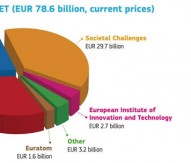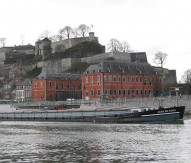
Groups to advise on H2020 priorities
The European Commission has appointed the 15 groups of independent experts to advise on priorities for Horizon 2020. The advisory groups comprise of public, private and civil society members.
According to the Commission, up to 40% of group members have not advised on previous EU research programmes, which has helped to ensure a ‘fresh approach’ to the new programme. Advisory groups have also for the first time overcome the under-representation of women, with female participation averaging 52% across the groups. The diverse composition of the groups will help in deciding how EU-funded research and innovation can help address major concerns for Europe, such as providing better healthcare and clean, efficient energy.
Commenting on the announcement, Máire Geoghegan-Quinn, European Commissioner for Research, Innovation and Science, said: “I am grateful that the European research and innovation community has responded. I am in particular delighted to see a high number of women and new experts wanting to get involved.”
Following an open call inviting experts from all fields to participate, more than 15,000 responded by the first deadline in March of this year. From these, around 400 experts were chosen for the 15 groups, with 20-30 in each. The groups are one of the key sources of advice on the implementation of Horizon 2020, in particular the priorities for the development of the work programmes from which the calls for research and innovation proposals are published. The groups cover elements of all three pillars, particularly the Key Enabling Technologies and the seven societal challenges, as well as the framework programme’s contributions to EURATOM.
While all groups have been appointed, groups are being finalised on an on-going basis as individual experts accept the appointment. More information on the groups can be found here.


